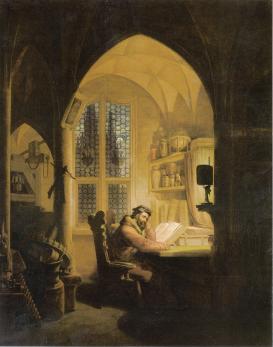How do ways of life emerge and how are they transformed? Ways of life are essential to any historical description of a given society, yet we hardly have any historical account of their making. Anthropologists often refer to them as given, as one of the basic building blocks of cultures, while historians have tended to treat them as the products of long-term and largely invisible processes. Fifteenth- and sixteenth-century northwestern Europe provides an uncommon opportunity to explore these questions. Within the time span covered by this book project, the way of life of one of the best documented social groupings in European history went through a deep and visible transformation, as scholars renounced celibacy and college life, embraced marriage, and began founding family households.
This move posed some fundamental challenges for male scholars, both practical and symbolic: How to implant the life of the mind in family households and reorganize everyday life accordingly? How to combine the transmission of higher knowledge with social reproduction? And finally, how to reshape their social image in order to reassert their cultural authority, which traditionally had been associated with the visible rejection of worldly concerns—material gain, sexuality, and familial attachments? In the new circumstances, as married members of urban communities, scholars had to renegotiate their received image so as to make their worldly way of life, their social involvement and intimate dependence compatible with the autonomy and authority they still claimed for their special calling. Sixteenth-century humanists hence discussed intensively as well as experimented with the scholarly way of life. The conflicts, uncertainties, and debates involved in this transformation produced the evidence on which this study relies.

